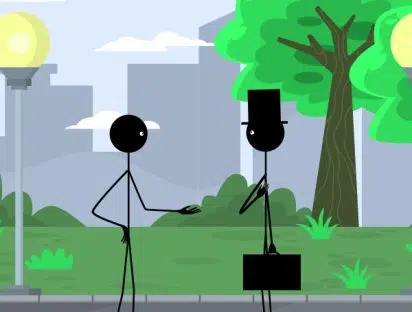
1.
Here is a general description of the parrhēsia proposed by Foucault:
“Etymologically, parrhēsia is the act of telling all (frankness, open-heartedness, plain speaking, speaking openly, speaking freely). The Latins generally translate parrhēsia, as libertas. It is the openness which makes us speak, which makes us say what has to be said, what we want to say, what we think ought to be said because it is necessary, useful, and true.” (2)
Say what you think ought to be said, “because it is necessary.” This is a definition that fits well with a word Greta Thunberg reported in the New York Times: “I only say what’s necessary.” (3) Speaking frankly –using parrhēsia – is similar to, for a speaker (e.g. Greta Thunberg), taking the position of a neutral and impartial spectator. It allows the truth to be told, a truth that includes two aspects here: the facts (what is at issue reveals reality accurately) and the actions to be taken to correct the present situation (the facts must encourage action for a certain good). In our post on 15 March 2019, we noted that Greta Thunberg perceived the reality of the climate crisis and that she believed that those with the power to act, primarily the powerful (politicians and business leaders) but also adults in general, tended not to see this reality and, as a result, not to act in line with the upheavals threatening the planet.
2.
In Plato’s Gorgias, the parrhesiast acts as a revealer. This is what Socrates expresses at the beginning of his dialogue with Callicles. He said to his interlocutor: “I believe that in meeting you I have hit upon just such a lucky find,” and this lucky find is a “touchstone” (4) – term which means, in a figurative sense, “a test or criterion for determining the quality or genuineness of a thing.” At Callicles’ request (he did not understand what Socrates was talking about), Socrates replied that Callicles’ property of being like a touchstone – i.e. like a test – could allow him to know the truth about his soul:
“I am quite sure that if you agree with me about anything of which I am convinced in my soul, we shall have there the actual truth. I have noticed that anyone who is to make an adequate test as to whether a soul is living well or the reverse must have three qualities, all of which you possess: understanding, goodwill and readiness to be perfectly frank. […] Our two guests here, Gorgias and Polus, though they are well disposed towards me as well as wise, are nevertheless somewhat lacking in frankness and more hampered by inhibitions than they ought to be. It is obvious that these inhibitions extend so far that each of them has been reduced by false shame to contradict himself before a large audience and on extremely important matters.”
Frankness (parrhēsia) is an ingredient of the touchstone to which Socrates refers. It helps to reveal the soul of the other. Referring to this passage from the Gorgias, Foucault insists that, for a person to see the truth – for him to be able to understand himself in the sense of understanding the reality of his beliefs, what they really cover – he must be helped by someone else. For the other to be able to help, he must have parrhēsia, but also knowledge and benevolence. That is what Socrates said to Callicles. Here is Foucault’s comment on it:
“When the soul wants a touchstone, that is to say if it wants to know […], that is to say if, in its will to look after itself, to take care of itself, the soul seeks a touchstone that will enable it to know the state of its health, that is to say the truth of its opinions, then it needs someone, another soul characterized by epistēmē (‘knowledge’), eunoia (‘benevolence’), and parrhēsia.”
Foucault’s comment suggests a necessary condition for the parrhesiast (here Callicles) to be able to help a person to know the state of his soul (here Socrates, even if his posture towards his interlocutor is ironic): this person must desire to know the state of his soul.
3.
However, it is conceivable that the parrhesiast aims to enlighten those who, precisely, lack parrhēsia. This is what Greta Thunberg does. She speaks to people (the powerful, adults, young people) whose beliefs, in her opinion, do not correspond to reality – beliefs that deny the ecological state of the planet. She also speaks to those who believe, within themselves, that the situation on the planet is disastrous, but do not translate their actions into action. To the first category of people, she asks them to see reality. To the second category of people, Greta Thunberg asks that they leave their timidity, their shame, their scruples behind them– the words used by Foucault to describe those who do not possess parrhēsia. In both cases, what matters in the form of parrhēsia used by Greta Thunberg is her questioning method which is close to challenging, or even apostrophe in rhetoric. Her questioning is here (like the parrhēsia) an antonym of flattery. It opposes agreed speeches and conventional wisdom, unmasks what is hidden behind the polished forms of public language. It “dispels illusions,” as Foucault says about another meaning of parrhēsia. In the same vein, the questioning specific to parrhēsia is a way of escaping absurdity, stupidity and madness. Here is what Foucault says about the use of the word in a text by Euripides (the “master” in question below can be related to the slave in the context of the Greek polis):
“Someone who does not have parrhēsia is at the same time subject to the master’s foolishness, to his madness; that is to say, you see the idea appearing that parrhēsia is not only a right, in its foundation and origin, if you like, but also that its function is to speak something like reason and truth to those who are wrong, who do not possess the truth, and who have the mind of the foolish or mad.”
But that is not all. Foucault imagines the position of the slave who knows the truth, but who cannot tell it because of his social status:
“And [what] greater sorrow than to be in a slave’s situation, subject to the madness of others, when one could tell them the truth, but may not do so?”
There is no doubt another aspect of Greta Thunberg’s point that can be recognised. It is not only “challenging” in the sense that parrhēsia can be. It is also a declaration of personal independence. This is probably a problematic aspect, because it could denote, on the part of Greta Thunberg, not the liberation of speech and truth-telling, but the pleasure of free speech, the pleasure of independence, or, simply, the pleasure provided by the exercise of parrhēsia. To highlight this pleasure (which may or may not have any reality) and use it to counter Greta Thunberg’s arguments could be interpreted as a counter-offensive on the part of those who feel timidity, shame and scruples – internal psychological states that prevent them from examining their beliefs about the ecological crisis. A counter-offensive which has a form of political correctness. It would be unwelcome given the state of the world, but it is already at work. Because parrhesiasts are disturbing by nature, since they denounce what is hidden in the existing order. Alain Anquetil (1) M. Foucault, “La Parrêsia,” Anabases, 16, 2012, p. 157-188, tr. G. Burchell, “Parrhēsia,” Critical Inquiry, 41(2), 2015, pp. 219-253. (2) M. Foucault, L’herméneutique du sujet, Paris, Gallimard/Le Seuil, 2001, tr. G. Burchell, The hermeneutics of the subject: Lectures at the College de France, 1981-1982, Palgrave Macmillan, 2005. (3) “Becoming Greta: ‘Invisible Girl’ to Global Climate Activist, With Bumps Along the Way,” 18 February 2019. (4) Plato, Gorgias, tr. W. Hamilton & C. Emlyn-Jones, Penguin Classics, 2004. [cite]




